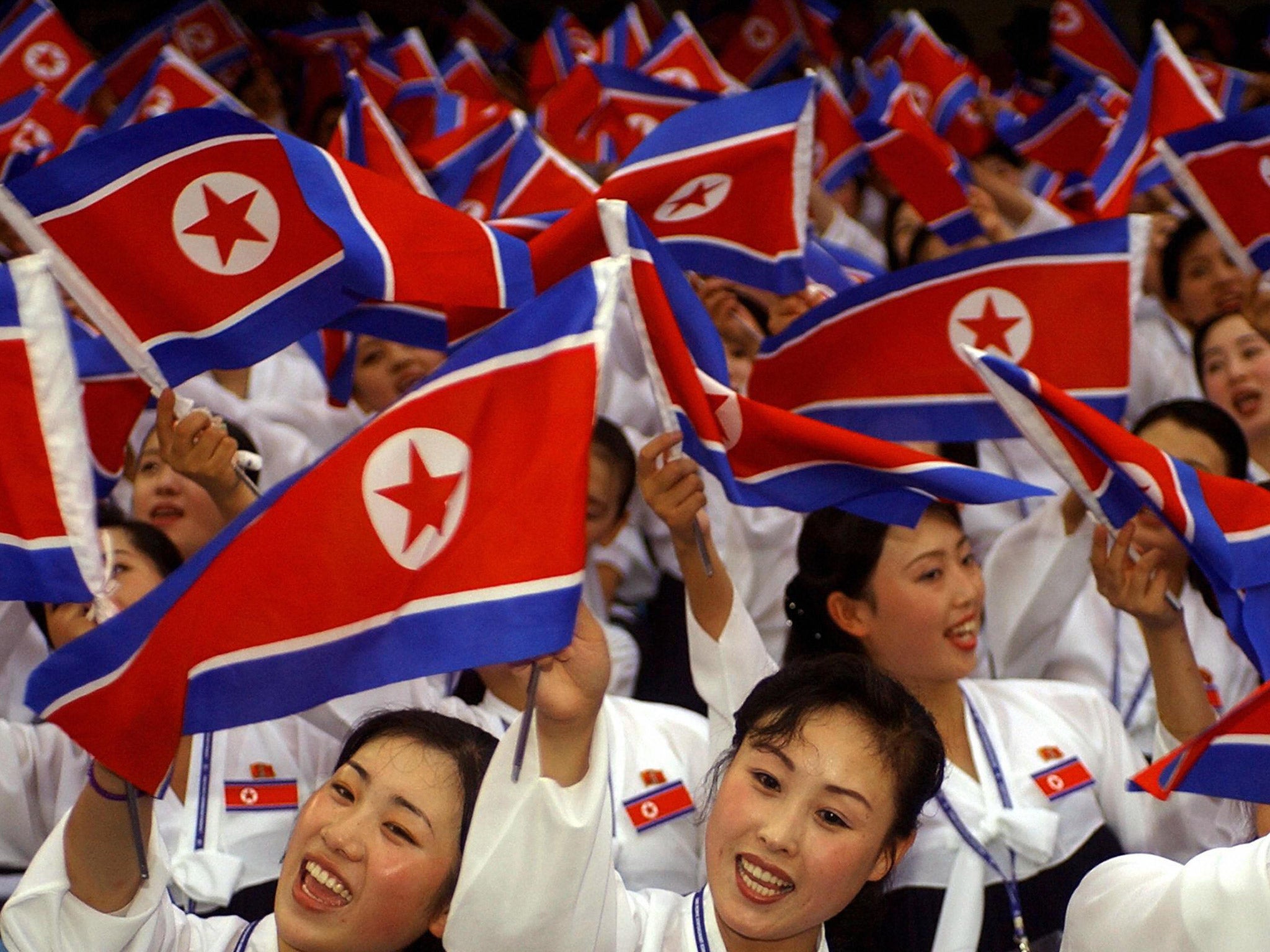Why we should support North Korea's cheerleaders
North Korea's decision to send a cheerleading team to the Asian Games in South Korea could signify a cynical charm offensive – or be a cause for celebration, says Adam Taylor

Your support helps us to tell the story
From reproductive rights to climate change to Big Tech, The Independent is on the ground when the story is developing. Whether it's investigating the financials of Elon Musk's pro-Trump PAC or producing our latest documentary, 'The A Word', which shines a light on the American women fighting for reproductive rights, we know how important it is to parse out the facts from the messaging.
At such a critical moment in US history, we need reporters on the ground. Your donation allows us to keep sending journalists to speak to both sides of the story.
The Independent is trusted by Americans across the entire political spectrum. And unlike many other quality news outlets, we choose not to lock Americans out of our reporting and analysis with paywalls. We believe quality journalism should be available to everyone, paid for by those who can afford it.
Your support makes all the difference.When you think of North Korea, "cheerleaders" may not be the first thing that springs to mind. The Hermit Kingdom is perhaps better known for less savoury things such as gulag-like labour camps and leadership purges. But the news that Pyongyang plans to send a "cheerleading squad" to the South Korean city of Incheon for the forthcoming Asian Games is not just a surprising and weird news story – it may actually be quite an important political sign.
The cheerleading squad's proposed visit was first announced in a report from KCNA, North Korea's official news agency. "It is necessary to put an end to all kinds of calumnies and vituperation that foster misunderstanding and distrust among the fellow countrymen," the report read, according to Reuters.
"We have decided to dispatch a cheerleading squad along with the athletes to the 17th Asian Games in order to improve relationships between the North and the South and to create an atmosphere of national reconciliation."
North Korea sent hundreds of cheerleaders to the South for sporting events in 2002, 2003 and 2005, and the synchronised dancers drew positive responses from South Korean crowds, who reportedly called them an "army of beauties".
However, the dancers have not been sent south in almost a decade, and in 2006 there were reports that some of those cheerleaders had been imprisoned for talking about their experiences abroad upon their return.
So what has changed? Well, the latest announcement comes as Pyongyang appears to be extending an olive branch to Seoul after a period in which relations had been frayed by missile launches and violent rhetoric. The top story on the KCNA website on Monday was a statement that called for "ending confrontation and improving North-South ties," arguing that "South Korean authorities should discard the anachronistic concept of hostility." A number of other stories carried by the news agency pushed a similar sentiment.
It's certainly possible that North Korea is making a cynical charm offensive to be used as leverage, says Adam Cathcart, the editor in chief of the North Korea-watching website Sino-NK, although this does really appear to be a sign that the softer tone North Korea had adopted toward the South at the start of 2014 may be returning. "Any time you have North Koreans agreeing to send an official delegation of their own people to South Korea for any reason, it is a big deal," Cathcart says.
There's also another big event looming that Kim Jong-un, the young leader of North Korea, may want a piece of, Cathcart notes: the 2018 Winter Olympic Games, due to be held in Pyeongchang, South Korea. North Korea has clearly been promoting its own winter-sports resorts recently, and may even be hoping to co-host some events. "That will be good for his prestige and would feed into this notion he's promoting internally of North Korea's international importance," Cathcart points out.
The move also carries the distinctive fingerprints of Kim, who has shown a fondness for sporting diplomacy (Dennis Rodman's trips being another obvious example). Kim's wife, Ri Sol Ju, was one of the performers sent to South Korea in 2005, and may have had a word in her husband's ear promoting the trip.
All in all, sporting events might have been a rare bright spot in recent North-South Korean relations. And while it may be tempting to chuckle at the idea of North Korean cheerleaders descending on South Korea, it might be something we should support.
© Washington Post
Join our commenting forum
Join thought-provoking conversations, follow other Independent readers and see their replies
Comments